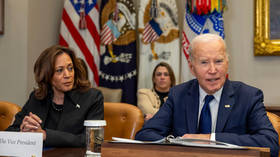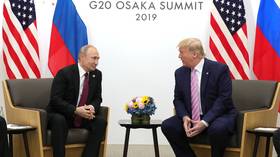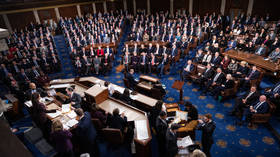‘Clear link between anti-ISIS military intervention and blowback at home’
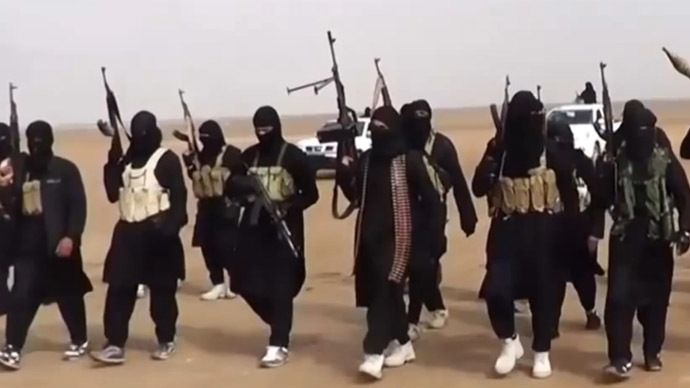
Europeans should be careful because terror threats don’t come out from nowhere, and are the consequences of lasting western intervention in the Arab world, Middle East journalist Dilly Hussain told RT.
There is a clear link between intervention in Syria and Iraq by Europeans and blowback in their home countries in the EU, Hussain said.
RT:The Dutch Defense Ministry has advised its personnel not to wear their uniforms on public transport amid growing fears that the country could be targeted by radical Muslims. Do these extremists really pose such a major threat in places like the Netherlands?
Dilly Hussain: If we are talking about Europe, generally speaking we have to be very careful: these terror threats don’t come out from nowhere. In the UK just three weeks ago, our Home Secretary announced that there was a rising terror threat, and then all of a sudden the parliament will be voting [Friday] about whether they are going to carry out military airstrikes. Similarly in Holland. This terror threat, and telling army soldiers and police officers not to be wearing their uniforms came after the announcement that the Dutch government will be sending six F-16 fighter jets. We have to appreciate that the terror threats don’t just come out from nowhere – they come as a result of foreign military intervention in the Arab region. So, the Syrian conflict has been there for three years and is now approaching its fourth year. There has not been a single terrorist act that accrued in Europe as a result of it. And now when we are going to see military intervention in Syria and Iraq, then there will be blowback in Europe.
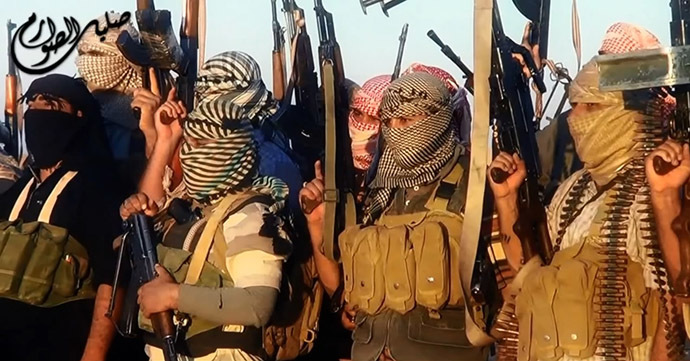
RT:What do you think about the recent UN resolution on tackling the flow of Islamists into Syria? How can states tell which of their citizens is a potential terrorist?
DH: Many British fighters have gone over to Syria. They have made it very clear: they have no intention over coming back to the UK, and they have no intention of carrying out terrorist attacks in the UK. I am assuming that is the same for most Europeans that are going over to Syria and Iraq to fight with the rebel factions, including ISIS. Now we have to focus on the element of military intervention. Clearly western countries – namely the US, the UK and their allies – have not learned the lessons from Iraq and Afghanistan, from military intervention in the Arab world.
RT:What should be done about hardline Islamists openly supporting jihadists on the streets of places like Oslo and London?
If these groups are carrying out protests in support of a banned organization, obviously law enforcement will deal with that however it thinks is appropriate. But the main fact of the matter is the terror threat, how feasible and how serious is this terror threat that our governments are telling us about. The reality is usually it’s based on non-intelligence, it is usually unfounded intelligence – and it is usually facilitating the masses to accept and to support military intervention in the Arab world.
RT:And finally, how about the current strategy of airstrikes against Islamic State? Will they be effective against the jihadists?
Marloes Visser, the Dutch Defense Ministry spokeswoman, when she announced this, she said they had no link to Wednesday’s announcement by the government sending six F-16 fighter jets. Additionally, Dick Schoof, who is counter-terrorism chief, said it was just a precautionary matter. Let’s be serious – you are going to be sending in six fighter jets to bomb another country and all of sudden you are telling your soldiers not to be dressed in uniform. Clearly, you must think your masses are gullible or stupid; there is clear link between military intervention and blowback at home.
The statements, views and opinions expressed in this column are solely those of the author and do not necessarily represent those of RT.


